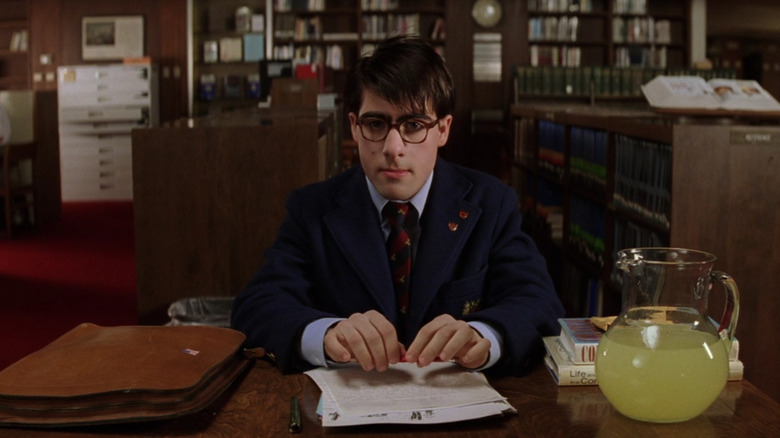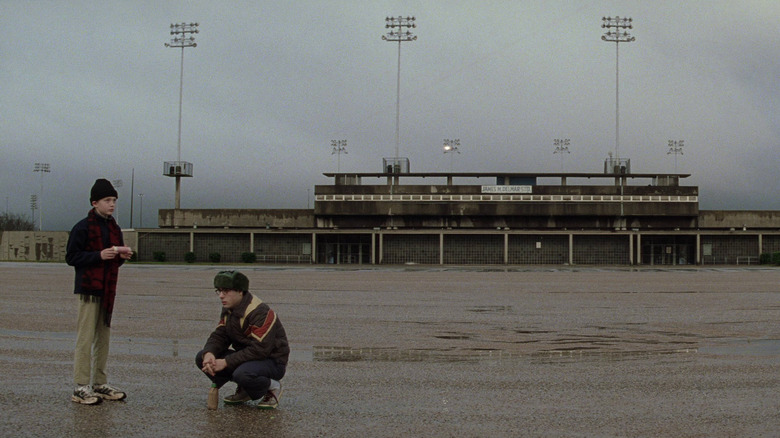Filming Rushmore Was An Unexpected Homecoming For Wes Anderson
"Rushmore" was the film that put Wes Anderson on the map, but it was also a return to his roots. The coming-of-age feature was shot at the same Houston high school that the director himself attended as a teenager. The strong memories associated with Anderson's old school and his hometown deeply — and even subconsciously — informed the making of "Rushmore." Returning to his old stomping grounds aided Anderson in creating a timeless and raw expression of his adolescence.
Anderson's sophomore film centers around Max, a student with high academic ambitions and very low grades. He is a jack of all trades and master of none, but he does have a knack for putting on plays. Anderson admitted that there are "parallels" between Max and himself to Charlie Rose:
"The school where we filmed is my school... my school in Houston, that's where we shot it. And the plays that he puts on are inspired by some plays that I put on when I was very young."
Filming at the director's old high school had a number of benefits, including practical ones. "It's one of the few experiences I've had where we had written these scenes... picturing the exact spots where we shot it," Anderson revealed to Film4. Even though he had been imagining his own high school when he wrote the film, Anderson didn't think he would get the chance to actually make the film there. "I didn't expect to shoot the movie in Texas even, and in fact, at one point we had found a school in Scotland that we thought might be better, and you know, we were looking all over the place," he recalled.
Anderson went back to class for the Rushmore shoot
The most memorable part of making "Rushmore" for Anderson was returning to the place he grew up. "We made 'Rushmore' in my high school, so the strongest association for me is being back in class, essentially. You know, literally in the same classrooms," he explained. Shooting "Rushmore" in the same place where Anderson himself came of age probably allowed him to access Max's mindset more easily. "The thing that probably strikes me the most forcefully when I think back on it is just that I was, went home," the director concluded.
Houston, Anderson's hometown, has always had a big impact on his filmmaking. "Houston has an incredibly deep cultural tradition, I think. We have great museums and we've always had lots of movies here. I think it's a very good place to start," he told Houston Matters. The city's disordered layout may have even influenced his distinctly symmetrical cinematography. "Maybe if you feel a little chaos as a kid... you want to make order, you want to make it neater," Anderson suggested.
Max and Anderson have a lot of similarities, even attending the same high school, but the director didn't intend for "Rushmore" to be autobiographical. He wanted his work to speak to who he was as a teenager, not to reflect it, and he succeeded. "If I had seen this movie when I was 15 years old, that would have been my movie. That would have changed me," he told Charlie Rose triumphantly.
Shooting at his old high school in Houston made "Rushmore" a deeply personal film for Wes Anderson, and this intimacy is apparent onscreen. The filmmaker's connection to the characters, the setting, and the story made for an unforgettable work that established his signature directorial style — or, as he calls it, his cinematic "handwriting."

